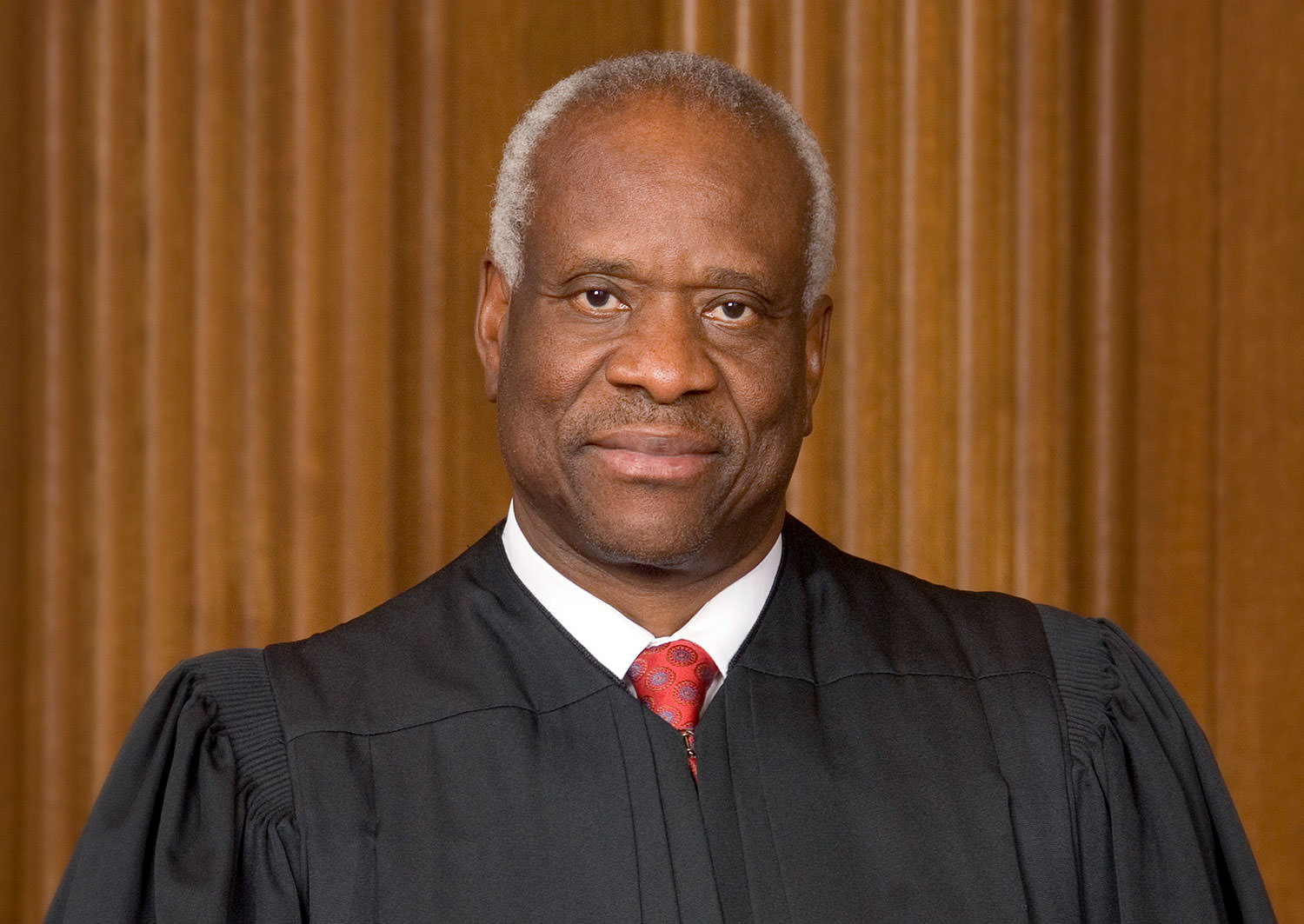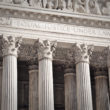The Supreme Court’s 6-3 decision in Moore v. Harper may well be one of the most consequential Constitutional cases affecting the future of American democracy. But its political meaning is as significant as its legal implications. Its wider context is the current court’s crisis of legitimacy, Donald Trump’s attempted coup to overthrow the result of the 2020 election and the determination of Justice Clarence Thomas to sustain the right-wing’s legal options to nullify a federal election in the future.
The ruling rejected the so-called “Independent State Legislature Theory,” (see Constitutional Coup in the October 2021 Washington Spectator ) which contends that the Constitution renders decisions of state legislatures unreviewable by state courts, and that they are therefore outside the boundaries and requirements of the state constitutions when it comes to gerrymandering and redistricting in one clause, and the selection of Presidential electors in another.
The majority opinion, written by Chief Justice John Roberts, should be understood as his desperate effort to undertake a rescue of the Court’s legitimacy, and maybe the country in the process. Roberts recruited the court’s newest Republican members, Brett Kavanaugh and Amy Coney Barrett, to save their tattered robes, too, and join him in making it harder for anyone to disrupt a future Presidential contest with competing versions of who in fact won the election.
The Independent State Legislature Theory relies for its authority on supposed textualism claiming both the literal meaning of short phrases plucked from the Constitution, as well as outrageously bogus history. Its advocates have unashamedly claimed the authority of a downright fraudulent document from 1818, the “Pinckney Plan,” conceived by Charles Pinckney, a South Carolina signer of the Constitution. This argument stated the framers’ original intent in the Elections Clause was that elections would be decided only in state legislatures, rather than through the entire apparatus of checks and balances in each state. The only problem with this bit of originalist history is that the “Pinckney Plan” was a forgery.
As further support for the petitioners’ absolutist interpretation of the Elections Clause, they also cite the Founders’ view that state legislatures were held in higher regard than state judiciaries. Thjs originalist history is also bunk, dismantled by historians. (Professor Rosemarie Zagarri, of George Mason University, demolishes the originalist tower of falsehoods in the Boston College Law Review.)
The theory posits that the Constitution says “state legislatures” alone will decide on the time, place and manner for federal elections, and on how the state chooses electoral votes for President (by congressional district, for example, by state, or even by county). The doctrine gives whoever happens to be in the state legislature at that moment the sole right to make these decisions. Regardless of a Governor’s veto. Regardless of state law. Regardless of the state’s constitution. Regardless of the decisions of the state courts. Regardless of the voters.
If adopted in its most extreme form, the theory would have allowed state legislatures to decide whenever they wanted to select the winner in a Presidential race by certifying the slate of electors they want in the Electoral College. Its endorsement by the Court would have opened the 2024 Presidential elections to the filing of competing electoral slates in states controlled by Republican legislatures – especially those with Democratic governors, which is Trump’s dream scenario.
Endorsement of the theory by the Court would also have retroactively legitimated the efforts by Trump lawyers John Eastman, Sidney Powell, Rudy Giuliani, and a slew of their confederates to delay the certification of Joe Biden as President in order to give the state legislators time to declare that they had decided that their states had chosen Donald Trump for President, regardless of the actual popular vote.
Their scheme is now being investigated by Justice Department Special Counsel Jack Smith to determine whether there is a basis for criminal charges against any of those involved. and some participants have reportedly been granted immunity for their testimony.
But while six justices rejected the Independent State Legislature Theory in its entirety, the dissent from Justice Clarence Thomas, joined in whole by Justice Neal Gorsuch and in part by Justice Samuel Alito, is designed to keep the flame alive for the future.
The first part of the Thomas dissent asserts that the case was moot and should not have been decided at all, in effect keeping it open. In this, Thomas was joined by Alito and Gorsuch. But rather than leaving it at that, Thomas’ dissent, joined only by Gorsuch, gets close to addressing the “merits,” and takes the position that if the federal Constitution says “legislature” it means “legislature,” and the use of that word, as they define it in their rarefied textualism, would make the state constitutions irrelevant.
Here’s the key language in the Thomas dissent: “In prescribing the times, places, and manner of congressional elections, the lawmaking body or power of the state, as established by the state Constitution, performs a federal function derived from the Federal Constitution, which thus transcends any limitations sought to be imposed by the people of a State. As shown, each premise is easily supported and consistent with this Court’s precedents.”
Cutting through the dry legalese, Thomas argues that the Constitution grants state legislators the power to gerrymander, regardless of the limits on that activity imposed by the state’s own constitution — including ignoring equal protection language in state constitutions interpreted as limiting such gerrymandering.
Thomas then states that the position taken by the North Carolina legislature and its Republican party supporters in the case in effect substantiates Trump’s stance in 2020, because in Thomas’ opinion the Constitution grants state legislatures the unfettered right to choose Presidential electors. They have unlimited power to choose the winner in defiance of their state’s own laws, state constitution, and popular vote.
Thomas’ next major point explicitly rejects the idea that the people should directly choose the president, as distinct from only getting to choose their state legislators and thereby restoring indirect election of the president. This would give officeholders, instead of voters, the right to elect the President, much in the way the Senate was elected prior to the 17th Amendment: “If the power in question is not original to the people of each State and is conferred upon the constituted legislature of the State, then it follows that the people of the State may not dictate what laws can be enacted under that power—precisely as they may not dictate what constitutional amendments their legislatures can ratify.”
Thomas, in effect, has borrowed the sentiment from the Bogart movie of grifters and thieves, The Treasure of the Sierra Madre; “We don’t need no stinking badges.” His paraphrase for presidential elections would go: “We don’t need no stinking voters.”
But writing in his dissent, Thomas even further elaborates his contempt for democracy: “the court naturally must apply the Federal Constitution rather than any statute in conflict with it.” What he means here is that when the Constitution grants state legislatures a power, a special power that he has decided it has–the very power as it happens that Donald Trump wanted it to have in 2020, the power to choose the President–then no other jurisdiction or authority on earth can limit it.
Thomas’ dissent, of course, fails to mention that his wife, Ginni Thomas, was deeply engaged in the effort to prevent Joe Biden’s election from being certified. She served on the board of CNP Action, Inc. (the C4 wing of the Council for National Policy, the right-wing group that generated the plot), and she personally urged Trump electors in Arizona and Wisconsin to file false ballots as if Trump had won the popular vote in their states. Justice Thomas’ dissent is a not only a clear conflict of interest (yet another ethical disaster afflicting the court), but also a cover-up of his wife’s role in Trump’s coup, and possibly his own involvement through her.
For now, Roberts has won the battle, but those who want to overthrow the foundations of our democracy through extreme, supposedly textualist, interpretations of the Constitution are committed to a long war. The Thomas dissent is designed to avoid a surrender, to prevent the Moore case from being Appomattox, and instead to keep the flame of the Independent State Legislature theory alive for legions of right-wing funders, conservative “scholars” and partisan advocates to fan in the fire next time.
Jonathan Winer is a Washington lawyer who previously served as the State Department’s senior official for international law enforcement, and a member of Keep Our Republic, a group focused on protecting American democracy.




0 Comments